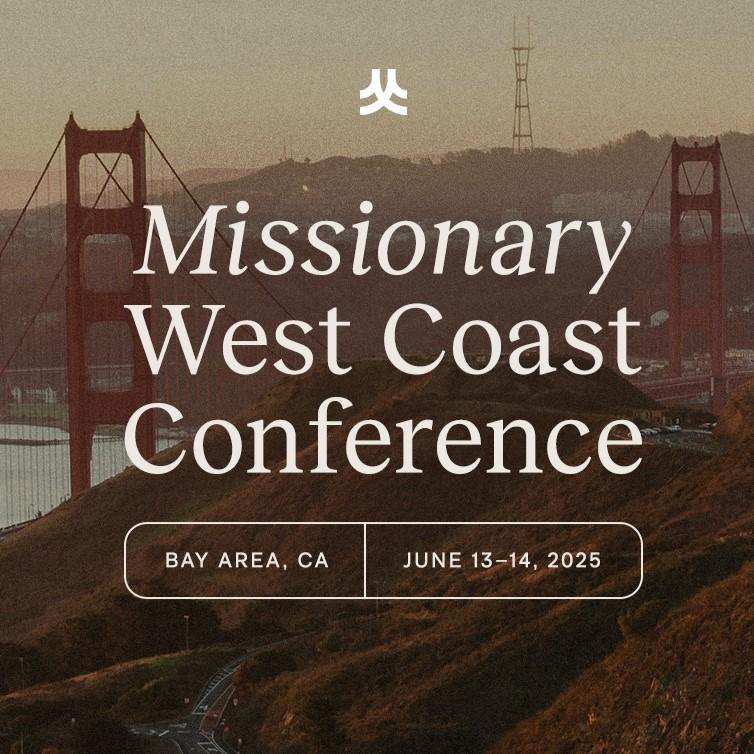About the Author
Bob is currently serving in North Africa learning his 3rd language and preparing to do church planting in a refugee context. He has his master’s degree in Public Health and has served with Frontiers International for 7 years on the continent of Africa.
Persons of peace and existing social networks
I’d like to start with what I hope is a fair summary of DMM’s teaching regarding PoPs. I will try to represent DMM as fairly as possible, footnoting quotes from DMM documents and trainings when possible (though this is difficult, since few DMM documents have been published):
We are told, in DMM, to look for nationals or cultural insiders who will act as gatekeepers for us, opening pre-existing social networks in their communities to our message. These people are called Persons of Peace (PoPs). PoPs may, or may not, become believers but they are not believers when we find them[0]. However, they are ready and able to open their networks to our message, thus catalyzing the spread of the gospel though pre-existing social networks. This is helpful, we are told, because new believers’ and seekers’ existing social networks should also become the spiritual community in which they grow[0]. We are told to make these social networks our “main focus”,and to avoid investing too much in lonely individuals or people who cannot/will not open their networks to us. We disciple groups, not isolated seekers. [^See handout Lesson 10, DMM STRATEGY BASED ON DMM CRITICAL ELEMENTS; “Evangelize Oikos (households and relational networks) as your main focus”
See also: DMM Critical Elements; Posted internally by a major missions organization; “8. Start with a Man of Peace…”; “9. Focus on households / families, not individuals” ]
I believe that DMM is onto something important – that except in extremely unusual situations, a mature national can minister far more effectively than an expat, and anyway, expat resources are limited. If we want the church to multiply, it will have to be nationals who take it forward. DMM also, in its call to search for nationals who can take the gospel forward, wisely warns us of the danger of spending years of our lives investing in a small group of people who are closed to the gospel.
But wise workers have known these lessons for hundreds of years. I believe DMM gets into trouble when it goes a step further: it places on us the burden of discerning who will and will not be effective in catalyzing a movement even before we have had a chance to see people’s response to Christ and it tells us to restrict the focus of our ministry to those who seem to be likely movement catalysts.
I believe that in restricting our focus to sharing with likely PoPs (as defined in DMM), DMM may be teaching us to aim too narrowly. We may actually miss some of the movements that are waiting for us.
In contrast to the focus on PoPs that DMM advises, in the New Testament, Christ, His apostles, and their followers follow a markedly different pattern (as I will try to show, below):
- Can we coin a new acronym? Jesus and the apostles tend to invest deeply in spiritually open people (SOPs). Spiritual openness, and not potential to start movements among pre-existing social networks, is their primary concern in deciding whom to invest in. Thus, most of their time is spent on the training and building up of believers who minister under and alongside them (Jesus with the apostles, Paul with Timothy and Titus; both Christ and Paul see great promise in the spiritual openness of their disciples even though their disciples are not PoPs, opening social networks to them). They also share the good news widely with unbelievers, but even in their evangelism, spiritual openness seems to be their main criteria in deciding whom to invest in more deeply; the point is not whether the unbelieves in question have a network of friends / family they are willing to provide access to (though they may). These spiritually open people (SOPs) do sometimes start movements or open their wider social networks to the gospel. Jesus and His apostles rejoice to take these opportunities when they occur, but there is never any indication that they focus on investing in individuals who will provide them. They are just as happy to share the good news with isolated seekers as with network-openers. Christ is happy to spend time with a Nicodemus, who seeks Him out alone, at night, in secret, and is also happy to spend time with the woman at the well, who broadcasts the message to the whole community.
- While Christ and his apostles are happy for the message to spread through existing social networks, they never try to restrict the movement of the message to existing social networks; in fact, it bursts the bounds of pre-existing social networks early and often in their work. This often causes conflict and messiness, but is ultimately something the church works through.
My suggestion: I suggest that when possible the above should also be our pattern for ministry. Our first responsibility is to invest in those who minister alongside us (teammates or national coworkers). However, we must also invest heavily in evangelism; in our evangelism we should not restrict our focus to people we believe to be PoPs and to their social networks but should share with all Spiritually Open Persons (SOPs). We should try to advance the gospel wherever openings exist – in existing social networks or beyond the bounds of those social networks. By focusing primarily on those who show signs of spiritual openness, we still avoid wasting decades of ministry investing in a small group of close friends who are not open to Christ (a valid concern of DMMers). As in the New Testament, some of the SOPs we disciple will go on to catalyze “movements” and some will not; sometimes their openness will be genuine and sometimes it will not; but we will not usually know or need to know this up front. Signs of spiritual openness will include: interest expressed, spiritual questions, conviction of sin expressed, desire for lifestyle change expressed, effort being made to learn more (think here of Zaccheus climbing the sycamore tree – if we had not seen this, we wouldn’t have known his heart but we would have had a pretty good guess that he was interested!).
Below, I will try to show scripturally why I believe this was the NT pattern for ministry. However, I would like to share first why I believe it would even be important: I am concerned that the way DMM teaches us to look for PoPs, rather than SOPs, may predispose us to the following mistakes:
- We may devote little time and effort to the single lost sheep [^See Lesson 7, FINDING HOUSEHOLDS OF PEACE; Distributed in DMM trainings:
“avoid focusing so much time on relationships with other believers and lost “non-persons-of-peace” that you cannot prioritize searching for persons of peace among those you know and those you meet”]; Jesus hints, in contrast, that every lost sheep merits all out search. In the DMM training I attended, we were actually encouraged at one point to wait to study the Bible with seekers until they could assemble a group of interested friends or family members. Similar suggestions have been made in other trainings [DMM training, recorded in Spain:
“Think of Cornelius. He bought together a large group of people. If you had picked off one guy, as opposed to looking for the person of peace, you would have limited your ministry. Think of Publius. The whole village, the whole place was coming there… and what a powerful influence Paul had, as opposed to focusing on one guy who wanted to talk in secret.”]. By limiting our focus on lonely seekers we risk being moved by strategy where Jesus was moved by compassion. Jesus was interested to meet with Nicodemus who came to Him alone, and at night, scared to let others know. Jesus could have turned away the children whose mothers wanted Him to bless them and focused His energy more “strategically”, but He did not.
- We may play God, in a way, by trying to figure out of whom God will and will not use. This is what happens when Ananias is told to go and heal Saul (Acts 9:13); Ananias is certain Paul will not catalyze anything but trouble. Like Ananias, we, in our limited understanding, have little knowledge of future things or of men’s hearts. We usually cannot know whom God will or will not use. And unless we are (like Ananias) prophets who are prone to receiving visions from God to correct our wrong assumptions about people, we may err where Ananias – after much direct prompting from God – finally did not. God works in mysterious ways and often chooses the seemingly useless things (and people!) to accomplish great purposes.
An MBB in the country I currently work showed little promise in ministry for years; he was distant from his family (no readily available social network) and was widely avoided by the worker community because he was thought to be treacherous; these suspicions were later found false and despite his early failures in binging any of his network to study with him, he has now brought many family member and friends to Christ. Judging him was not helpful, and from a movement perspective – it very nearly cut off his effectiveness down the road. Had a loving worker not discipled him (despite having heard the many reasons not to), this MBB might not have become the evangelist he now is… and thus, by discounting an obvious non-PoP, we might have missed a movement. This is one of my greatest concerns – that DMM may help us to catalyze some movements but leave us oblivious to others that could happen by passing by SOPs who do not appear to have potential to catalyze movements.
- We may underestimate the ability of the gospel to spread beyond natural friendship groups. It makes great sense, sociologically; too focus the spread of the message within natural relationships and affinity groups. But it is limited. It overlooks the great power of the gospel to spread beyond natural affinities so that there is “there is no distinction between Greek and Jew, circumcised and uncircumcised, barbarian, Scythian, slave and freeman but Christ is all and in all.” (Col 3:10). And ultimately, it leaves us scratching our heads and wondering what to do when the message has spread as far as it is going to. I currently work in a city in which dozens of tribes live together, worship at mosque together, and do business together – often in an environment of great tribal hatred. Importantly, they share a common language which they speak fluently, so it would not be impossible for them to worship or study scripture together. In the short run, I may make the task of church growth easier by focusing the message on only one of these tribes but ultimately, if we focus the message only on spreading through Tribe A, it can only go so far. Down the road, how easy will it be to bring members of Tribes B and C into a movement in which all the mature leaders are from an enemy tribe and have not been taught to worship with them? The power of the gospel to spread among Jews and Gentiles simultaneously defies all sociology and allowed it to spread through an ethnically diverse and fractured Roman empire. May it do the same in our cousin contexts.
LOOKING AT THE SCRIPTURES
Let us, then, look at the scriptures to see whether what I have proposed could be true. To begin with, are PoPs a biblical concept?
The phrase, at least, is scriptural. In the scriptures, the term “persons of peace” is taken from Christ’s commissioning of the apostles, and later of the 70. In these passages, a person of peace is simply an individual who will provide a roof for the apostles (Matthew 10:11–15, Luke 10:5–7), not necessarily an individual who will be the key to catalyzing a movement by opening a relational network. Importantly, this person must be willing to accept the apostles message; if not, the apostles are told to “take back your blessing of peace” (Matthew 10:14 – i.e. this is not a Person of Peace!), leave the person’s house and shake the dust off their feet. Interestingly, while DMM trainers appeal to Matthew 10 to show that the “person of peace” is a biblical concept, they then show that they are looking for something rather different than what Matthew 10 describes by telling us that a person of peace does not have to accept our message or to be have a good reputation, as Matthew 10 would suggest [0]. I think Matthew 10 is primarily instructing us to look for someone who receives the message, who is spiritually open. Opening relational networks is not the primary concern. So DMM pulls the term “person of peace” out of context, somewhat. But to be fair, that does not mean that DMM’s concept is not biblical – perhaps it is drawn from other passages. So let’s look further; do we see anything in the New Testament that resembles the search for PoPs that DMM tells workers to embark on today?
CityTeam’s DMM trainers provide a document [0] which tries to show, among other things, how effective and how common PoPs are in New Testament accounts. In the document, a long list of PoPs is given: Cornelius is listed as a person of peace (Acts 10). The dead widow’s son, whom Jesus heals (Luke 7:11–17), is listed as a person of peace. The woman at the well is listed (John 4), as is Zaccheus (Luke 19:1–10), the two blind men (Matthew 9:27–9), the Gerasene demoniac (Mark 5:1–10), Aquila and Priscilla (Acts 18:1–4), Jason (Acts 17:6), Lydia (Acts 16:11–15), and Crispus (Acts 18:7–8). A first glance at such a list suggests that the concept appears to be everywhere in scripture.
But careful scriptural interpretation will show otherwise. Many of the individuals listed above did, indeed, open their social networks to the ministry of the gospel (though in some cases, that is not clear). Some (like the woman at the well) were even used to catalyze “movements” in which large groups of people came to faith. In this sense, PoP’s exist in the New Testament. But again, all CP methodologies acknowledge that gifted evangelists exist!
DMM goes further. It does not simply argue that PoP’s exist and that sometimes insiders in a society are used by God to speed the gospel forward. Instead, it argues that we should avoid investing too much in people who are not likely to do so (and thus, presupposes that we can know who will and will not become a PoP. In the entire New Testament there is not a single instance in which Jesus or His apostles (or any other New Testament believer) places lower priority on investing in a spiritually open person because he/she could not or would not open his/her network to the gospel, nor is there any record of them trying to discern whether someone would do so before deciding whether or not to invest in a spiritually open person. Being a PoP, in the DMM sense, is never a precondition for Jesus or His apostles to minister in someone. And in most cases, without prophetic insight directly from God, we would never (if we had been in their shoes) have had any indication which of these individuals was going to be instrumental in moving the gospel forward in his/he social network and who was not. All people have social networks. All people, when they are touched by God in a deep and a personal way, have potential to affect their communities.
As we look at the scriptures, we will see that Jesus and the apostles primarily focus on people who are spiritually open (SOPs) but who do not fit DMM’s criteria for PoPs. Even when these people do end up catalyzing movements, there was often no indication up front (before Jesus or other NT workers invested in them) that they would do so, except that they showed spiritual interest. So Jesus and other NT workers are using different principles than those advocated by DMM as they decide whom to invest in. Following their example, what we should be looking for are SOPs (spiritually open people), not PoPs.
Did Jesus look for PoPs?
Let’s start by looking at the ministry of Jesus:
- Jesus’s primary ministry focus is on equipping the apostles to continue His work. The apostles are not PoPs. Their ministries are not primarily to local communities in which they possess social networks that are key to the spread of the gospel. This is why, in Matthew 10, they need to look for houses in which to stay. Thus, the primary focus of Jesus’s ministry does not involve PoPs but rather a raising up of committed believers to continue His work, perhaps akin to a team leader discipling team member, or an expat worker discipling a very committed MBB.
- After the disciples, Jesus’s ministry is given to the people at large. He interacts with dozens of people who are not PoPs; mostly these stories involve Him healing them, though dialogue is occasionally included. Jesus is clearly happy to spend time with people who have no ability to further his ministry (Matthew 19:13) or who are likely to play only a marginal role in doing so. His goodness is widely available to all people, and draws towards Him those who are spiritually open.
- Jesus is happy to spend time with Nicodemus and Nicodemus is definitely not a PoP. He is too scared to come to Jesus by daytime and thus is not about to open his network of relationships to Christ. However, he is open enough to the good news to risk damaging his reputation by coming to Jesus (he is an SOP) and Jesus has compassion on him.
- Others are mentioned specifically whom Jesus spends time with: Baritimaeus (Luke 18), the rich young ruler (Luke 18), the hemorrhaging woman (Matt 8), the centurion (Matt 8), the Canaanite woman (Matthew 15) the synagogue official (Matt 8), the tern lepers (Luke 17), Mary and Martha (Luke 11), etc., etc. There is no mention that the majority of these did anything to open their relational networks to His message in the way that PoPs are meant to do. Generally, Jesus ministers to them simply because they ask Him in faith.
- Surprisingly, Jesus often spends time with spiritually open people (SOPs) who close networks of relationships to Him. When He eats with “sinners” in Matthew 9, He is criticized and probably loses open doors into some communities. A similar thing happens when He allows the sinful woman to anoint His feet.
- Jesus’s ministry is set up both to work in pre-existing relationships (he calls Peter and Andrew who are brothers, and James and John) and also to burst natural networks of relationships by bringing together natural enemies; Matthew 10 (vv. 3–4) tells us that His original 12 apostles include a zealot (a member of a party interested in overthrowing Rome) and a tax collector (a stooge of Rome).
So, most of the people Jesus spends most time with are not PoPs and He is not overly concerned to work only within pre-existing social networks (though He clearly values the love that exists in pre-existing human relationships [Matthew 15:3-]).
Now, to be fair, let’s devote special attention now to the people we see in Jesus’s ministry who are possible PoPs. As we do, let’s ask ourselves: would DMM have enabled me to identify this person as a PoP? If Jesus were a DMMer, would He have worked with this person? Would He have worked in this way? As we look at these stories, we will see that even though some individuals play a role in opening doors for others in their social networks to come to Jesus, Jesus Himself does spend any time looking for such individuals or paying special attention to them. His involvement in the lives of spiritually open persons around Him is never conditional on them opening their social network to Him.
- Philip is a good candidate for a PoP; he plays a sort of PoP role when he brings Nathanael to Jesus (John 1:43–51). But let us put this in perspective. It is healthy for seekers and new believes to bring their friends and family with them to seek Jesus – no CP methodology denies this. This is natural. What DMM asserts – further – is that we should primarily focus our ministries on those who are likely to do so from the outset. I would note, then, that against this one case, the other apostles are not recorded bringing their communities with them. Additionally, Philip only manages to bring one person with him (not a network) and there is no indication this was a precondition of Jesus devoting special focus to him as DMM tells us it should be. Jesus saw spiritual openness in Philip and that was enough for Him. Philip brought a friend, as spiritually open people often do.
- Jesus spends time with Zaccheus (Luke 19); as a result, Zaccheus repents publically, but there is no indication that Jesus used anything but Zaccheus’s spiritual openness as a criteria for deciding to work with him; Jesus sees Zaccheus in the tree (and you don’t climb trees to listen to Jesus if you aren’t spiritually open, an SOP) and that is enough for Him to minister to Zaccheus. Jesus invites Himself for lunch; inviting yourself to eat lunch at someone’s house is a long way from knowing that person will open his social network to you. There is also no indication that Zaccheus catalyzes a movement – Jesus’s statement that “salvation has come to this house” could imply that Zaccheus’s whole family had shared in his sin and that they had all repented with him, but it is also a natural thing to say when a head of a household repents.
- After Jesus calls Matthew, a number of “sinners” come and eat with Him (Matthew 9). It is often assumed that Matthew has thrown a party here, but this is not stated in the text. It is also not clear whether these are friends of Matthew’s or whether they are simply people who are encouraged by the fact that Jesus has been seen to spend time with tax collectors and sinners. But even if we assume that this is a result of Matthew opening his community to Jesus, it is vital to note that Jesus calls Matthew before this happens, not after. That is, Jesus commits to spend time with Matthew before it is clear whether Matthew will be a PoP. DMM encourages us to do the opposite – we only begin helping Bible studies happen after the PoP assembles a group. And it is unlikely, at this point in His ministry, that Jesus called Matthew because He thought Matthew was a “gatekeeper” into the community. Jesus would not have needed a “gatekeeper” into the community at all; sinners were already interested in Jesus because He was a well-known teacher and healer and crowds had been thronging to see Him for the past several chapters (Matthew 4:25; 8:1,18; 9:8). So, Matthew may be a DMM-style PoP but we can’t really conclude this with any certainty, and if he is, we will not likely identify PoP’s like Matthew by using DMM practices.
- The woman at the well does act as a sort of gatekeeper into the community and so we can describe her as a PoP, in the DMM sense. But again, I know of no methodology that would discourage her from spreading the message through her existing social network to get the message out. DMM, however, adds that we should not invest much time in people like her unless they have already until they show willingness to open their social network. And again, Jesus ministers to her before it is clear that she will open her community to him.
It is worth noting that there is something unique going on here – all methodologies I know of (including DMM, with its focus on conspicuous spirituality) would rightly tell men to be very cautious about spending time alone talking with a woman widely known to be promiscuous (to men who are reading this: have you often done something like what Jesus does here in your ministry? I have not!). So I doubt that following DMM principles – or other principles – would really have enabled us to find PoPs like the woman at the well, or to stun her with prophetic insight as Jesus does. Whether we use DMM or other methods, we will only find woman-at-the-well type figures through God’s supernatural at work, and if we had been in Jesus’s shoes neither DMM nor any other methodology or set of “principles” would have been likely to help us identify to woman at the well as a PoP. Our best bet to find such people is simply to be open to the movement of God in all people, including those who seem unlikely to benefit our ministries.
- Perhaps the demon-possessed man in Matthew 8/Mark 5 can be seen as a PoP? But again, no methodology I know of – DMM or otherwise – would hesitate to encourage someone from speaking of God’s goodness to him after benefitting from a very significant miracle. DMM differs in that it tells us not to focus our ministry on a person until they open their social network to us. Jesus does the opposite; he heals the man while he is still raving, before it is even clear whthe he has a social network. Many of the PoPs mentioned in DMM trainings (the widow’s son in Luke 7, the two blind men in Matthew 8) are similar in this regard. Jesus heals them, but before He does so, there is no indication that they will open their social networks to Him. The assertion that the widow’s dead son is a PoP is somewhat humorous, since there was no indication he would ever again do anything at all! A DMMer certainly wouldn’t have identified him as a PoP to invest in! Afterward, of course, those who are healed talk about what happened – and again, all CP methodologies will encourage this. But DMM tells us to look for PoPs and to invest in them first and foremost. Jesus works differently. He does not choose to heal these people because they are PoPs. He is moved to heal by compassion (Luke 7:13), not strategy. Similarly, He is often moved to heal people by their faith (Matthew 9:2, 9:29) but there is never any indicator that He is moved to heal people by strategic concerns.
In summary, then, Jesus’s primary work is with the apostles, who are not PoPs. His next focus is on the crowds that come to Him, any and all, but with a special availability to minster to those who show extraordinary faith or spiritual openness (who we might describe as SOPs, not PoPs). Occasionally other minor PoP-like figures show up in His ministry and are used to spread news about Him. They may play some role in catalyzing “movements” and Jesus is, of course, quite happy about this! However, my contention is that:
- Jesus never makes their ability to open their networks to Him a precondition of His attention (as DMM teaches us to do), and if we had been there, we would probably not have been able to identify which of them were going to play this role
- Jesus never seeks them out for special emphasis in His ministry
In the NT stories we see, we would not have been able to guess who these people would be. Trying to do so today may only lead us to judge people without knowledge, and we may miss many of the people who would have been catalysts for the spread of the gospel.
Did Paul look for PoPs?
Shifting the focus to Paul’s ministry: Without reading heavily into the text we can’t conclude that Paul does much work with PoPs. Most of the individuals who facilitate his ministry and with whom he spends most time don’t fit the bill. Generally, they are already believers (the PoP, when we find him/her, is not). Paul’s investment in them is a bit like that of an experienced missionary discipling a new team member. They are usually cultural outsiders; he does not use them to open networks in the community.
- Barnabas, Silas and Timothy are coworkers. They are not PoPs as they were believers before they started working with Paul and are outsiders to communities they work in.
- Apollos was a Jew (Acts 18:24) not a Gentile, and thus was a cultural outsider – and he was originally from Alexandria, not from Ephesus where Paul finds him ministering so he is not a gatekeeper into the community. He is not a PoP but a gifted individual who is trained up to continue Paul’s work.
- Priscilla and Aquila (Acts 18:2–3) too are out-of-towners (from Rome) and are Jews, not Gentiles. They are not insiders in the community. Further, the fact that they travel with Paul (Acts 18:18) shows that they are more akin to coworkers or teammates than to PoPs. They are not PoPs but gifted individuals who are trained up to continue Paul’s work.
- Titus is a Gentile but most of his ministry happens in towns where he is a stranger and has no social network. He is not a PoP but a gifted individual who is trained up to continue Paul’s work.
- The Philippian jailer does seem to be a low level PoP. Paul does – after a very significant miracle – share the gospel with “all who were in his house” (though it is not clear whether the jailer bings them to hear the message or whether they are simply, like the jailer, awake and terrified after the earthquake). But again, no CP strategy would suggest we should not take advantage of such an opportunity. It is my contention that Paul’s decision to minister to him was based on his spiritual openness (“what must I do to be saved?” [Acts 16:30]), not on the fact that he could bring his family to hear the message. It is wonderful that he opens up his family to the gospel –we should always take joyful advantage of such opportunities, as Paul does. But this does not mean that we are primarily looking for people who will do so or that we should refuse to work with others who will not or cannot open up their networks to us. If a seeker ever comes to us as open as the Philippian jailer, we should share based on the spiritual openness demonstrated. We would, of course, encourage this person to bring others along if possible, but whether or not he/she was able to do so, we should share the gospel message.
- Lydia, in Thyatira, invites Paul and his companions to stay. But she is already a “worshiper of God,” and there of relational networks that she opens to Paul. It is the case that her immediate family is also baptized – but Paul seems to meet the whole family at the same time, since their baptism occurs before she invites him and his companions to stay. She does not “open” her network to him – rather, it simply happens that they all met Paul at the same time and are all interested (SOPs). Again, no CP method would discourage taking such an opportunity. We do not need to restrict our ministry to PoPs, as DMM suggests, in order to capitalize on such opportunities in the way that Paul does.
- Epaphras (Col 1:7) is a legitimate candidate – perhaps more so than any of the others – for PoP in that he takes the message back to his own people. And again, any CP methodology should encourage this. However, DMM goes further. It says that if we were to meet an Epaphras before he became a believer, we should not invest deeply in him unless he is willing (at that point, while still an unbeliever) to open his social network to us. There is no reason to assume this is what happened in Epaphras’s case. Epaphras was one of Paul’s traveling companions (Col 4:12) and so it is quite possible that he was a mature believer – perhaps had been a believer for years – before he went back to reach out to his own people.
- Importantly, Paul usually doesn’t need a PoP to open social networks to him because his pattern is to go straight to the synagogues or public places of worship and find a crowd there (Acts 13:5,44; 14:1; 16:13; 17:1,10, 19:8, etc.). In Athens, he switches tactics slightly and goes to a Pagan place of assembly (Acts 17:17).
- Crispus and his whole household believe and are baptized (Acts 18:7–8). Is Crispus a PoP? Would DMM have helped us to find someone like Crispus in a way that other methodologies would not? I don’t believe so. Crispus does not open his relational network to Paul; rather, he and his family seem to hear Paul simultaneously as Paul preaches publically (something DMM strongly discourages) in the synagogue and in the house next door (Acts 18:4–7). Again, if a family wanted to be baptized together, no CP method would tell us to overlook such an opportunity… though, ironically, Paul might have missed this opportunity altogether if he had been a full DMMer; he might not have preached publically in the synagogue (since DMM encourages facilitation rather than teaching), where Crispus (the “leader of the synagogue” [Acts 18:8]) heard the message. Thus, if Paul had been a DMMer he might not have had the opportunity to baptize Crispus and his family and to see “many of the Corinthians” believe.
- Perhaps most surprising to me: Paul rarely plants churches in groups that would have qualified as “natural” or “pre-existing” social networks. In fact, all throughout Acts, the norm is public proclamation, not the evangelization of families. After public proclamation occurs, persons from multiple social networks respond to the message and then form a church which encompasses and mixes many preexisting social networks. We see this early on in Acts 2:41, 4:4, and probably Acts 8:12, 11:21. The mixing of social networks creates tension (Acts:1–6) but is not avoided. This only becomes more a pattern in Paul’s ministry – his pattern is to go to synagogues and to reach a group containing both Jews and Gentiles (Acts 13:43, 14:1, 17:4, 17:12, 18:4, 19:10, 19:17). Jews and Gentiles did not probably share social networks even though they sometimes worshipped at the same synagogues – by comparison, where I work in North Africa people from enemy tribes worship at the same mosque. But I think we can see they are different social groups from the constant friction between them, in Acts 15, and every one of Paul’s letters (Acts 7 gives another example –the friction is not even between Jews and Gentiles but between Jews and Hellenized Jews [Jews who speak a Gentile language). Many Jewish Christians refused even to eat with Gentiles, as seen by their pressuring Peter and Barnabas to do the same (Gal 2:11–13). There is always conflict and messiness when different tribes, cultures, or social networks mix in the church, but it is worth it, to Paul, to bring them together because He sees that Christ “made both groups into one and broke down the… dividing wall… that in Himself He might make the two into one new man” (Eph 2). Christ is able to defy all sociological principles by uniting those who, in the world’s eyes, could never be united. He can make different pre-existing social networks become one. This is part of the glory and the “mystery” (in Paul’s language, Eph. 2) of His redemption.
I am overjoyed to see the gospel spread through pre-existing social networks like those of Epaphras or the Philippian jailer. But DMM constrains us to work almost entirely in these pre-existing networks. This makes good sociological sense – people don’t have to form friendships with others who are not like them. But what if it short-circuits the ability of the gospel to sweep across cultural and ethnic boundaries and to transform whole sections of society? Or to allow different to reconcile and appreciate each other? Perhaps the short term gains we achieve by focusing on existing social networks are overshadowed by long term losses when the gospel gets “stuck” in those networks. I am thinking here of a church plant I saw in [a certain city, name withheld for security reasons] where the believers were all from a specific (oppressed) tribe. Following Christ was a sincere thing for them but it also was away of rejecting things Arab (they felt oppressed by Arabs). It was “their” thing, and belonged within their own network. They would not have invited an Arab to join.
I am concerned that DMM’s avid search for the PoP – like its rejection of teaching – leaves it resting more on social theories than on scripture. In this case, it makes sociological sense to look for leaders or to leverage existing networks – that is a sensible way to grow movements, right?
But Jesus and his apostles do not seem to have worked this way. Their movements grew by the power of the Holy Spirit as they lived from hearts full of love, and had the power to spread beyond natural affinities so that there is “there is no distinction between Greek and Jew, circumcised and uncircumcised, barbarian, Scythian, slave and freeman but Christ is all and in all.” (Col 3:10). Jesus often defied commonsense sociological wisdom in growing His movement: He shied away from crowds; tried to keep His miracles quiet. There is no indication that He chose to mentor the apostles because of their great leadership potential (they were uneducated, uninfluential men) – rather, it seems they became powerful leaders because He invested in Him. He understood social theories but did not need them – His message and its power were sufficient.
When we grow movements though the use of social theories, we can become more strategic than compassionate. We can reason: “I know that person wanted to hear the gospel, but investing deeply in her is not strategic. She’s not a PoP, and I’m here to start movements, not to win isolated converts.” But if we grieve the compassionate heart of God with our good strategy, no movement will begin, or if a groundbreaking movement does begin, perhaps we ultimately will find that “the Lord was not in the earthquake” (1 Kings 19:11). Certainly if He is, it may be in despite our practices, not because of them. We are told in scripture that each lost soul matters; discipling people whose potential we perceive as low is not strategic; but, to use DMM’s question: “where do we find in scripture” that we can leave people behind just because they are not strategic? The story of Nicodemus, the story of Christ blessing the children, and the parable of the lost sheep strongly suggest otherwise. Christ also invests in people with more “potential,” but he never seems to use their potential as a criteria in deciding whether they are worth His time (instead, He tends to look at their measure of spiritual openness or at their faith). Where do we find a mandate in scripture that allows us to be so selective, or that suggests this type of selectivity will ultimately benefit the kingdom? We must be ready to invest every SOP. Yes, we plan for churches that will – if God blesses – grow so large that we will need to spend special time discipling leaders (as Jesus did with His disciples). But these leaders (like Jesus’s apostles) often will not be PoPs by DMM’s definition (as discussed above, the apostles were not!), and devoting special time to them is not the same as imagining that we could have picked them out from the beginning. We will select them based more on the spiritual openness we see in them than on the potential we believe they have to open new social networks for us. Nor will we pass by others who show little potential to be PoPs. I hope this frees us from the anxiety of having to find the right people to invest in. If we – as DMM and other methodologies rightly encourage – sow widely and openly, spiritually open persons will be drawn to us.
And as we share freely with these spiritually open persons, may God, in His grace, grow them through our ministry so that some of them go back, like Epaphras, and start the movements we pray for.
 We train individuals, couples, and families who are committed to long-term, pioneer church planting among unreached language groups. RADIUS students acquire spiritual, relational, emotional, and moral maturity as well as the physical stamina that will enable them to survive the rigors of cross-cultural work and life.
We train individuals, couples, and families who are committed to long-term, pioneer church planting among unreached language groups. RADIUS students acquire spiritual, relational, emotional, and moral maturity as well as the physical stamina that will enable them to survive the rigors of cross-cultural work and life.
 Do you desire to take the Gospel to those who have never heard and see a healthy church established? Apply today for our immersive training program.
Do you desire to take the Gospel to those who have never heard and see a healthy church established? Apply today for our immersive training program. Are you interested in learning first-hand about RADIUS training and whether or not it is a good fit for you or your people? Join us for RADIUS Days to see campus, sit in on classes, and interact with current students, interns, and staff.
Are you interested in learning first-hand about RADIUS training and whether or not it is a good fit for you or your people? Join us for RADIUS Days to see campus, sit in on classes, and interact with current students, interns, and staff. Come to one of our campuses in Mexico for a week-long, intensive program to serve via various campus work projects, learn more about The Great Commission, and get a taste of what our students experience during their year with us.
Come to one of our campuses in Mexico for a week-long, intensive program to serve via various campus work projects, learn more about The Great Commission, and get a taste of what our students experience during their year with us. Our friends at Missionary are hosting a conference for young adults and their leaders on June 13-14th, 2025 at NorthCreek Church in Bay Area, CA.
Our friends at Missionary are hosting a conference for young adults and their leaders on June 13-14th, 2025 at NorthCreek Church in Bay Area, CA. Join us for The Radius Conference on October 17-18th, 2025 at RAK Evangelical Church in Ras AL Khaimah, UAE.
Join us for The Radius Conference on October 17-18th, 2025 at RAK Evangelical Church in Ras AL Khaimah, UAE. Spend 9 months in Mexico and play a vital role in The Great Commission through serving our staff and students while gaining valuable cross-cultural experience and opportunities to grow in your faith.
Spend 9 months in Mexico and play a vital role in The Great Commission through serving our staff and students while gaining valuable cross-cultural experience and opportunities to grow in your faith. Would you like to join us in our efforts to further the spread of the Gospel in still-unreached places? Support the work of RADIUS International by donating online.
Would you like to join us in our efforts to further the spread of the Gospel in still-unreached places? Support the work of RADIUS International by donating online. Are you or your church interested in giving towards a special missions opportunity? Learn more about some of our current projects.
Are you or your church interested in giving towards a special missions opportunity? Learn more about some of our current projects. Partner with some of our current students by paying their tuition/room & board.
Partner with some of our current students by paying their tuition/room & board. Reimburse RADIUS for on-campus lodging and/or meals.
Reimburse RADIUS for on-campus lodging and/or meals. Check out our blog for recent posts from our staff, alumni, and ministry partners.
Check out our blog for recent posts from our staff, alumni, and ministry partners. Purchase recommended books from our online bookstore at 10ofthose.com.
Purchase recommended books from our online bookstore at 10ofthose.com.
 Do you desire to take the Gospel to those who have never heard and see a healthy church established? Do you think RADIUS might be a good fit for you? Apply today!
Do you desire to take the Gospel to those who have never heard and see a healthy church established? Do you think RADIUS might be a good fit for you? Apply today!
 Interested in working with RADIUS? Learn more about open positions.
Interested in working with RADIUS? Learn more about open positions.



